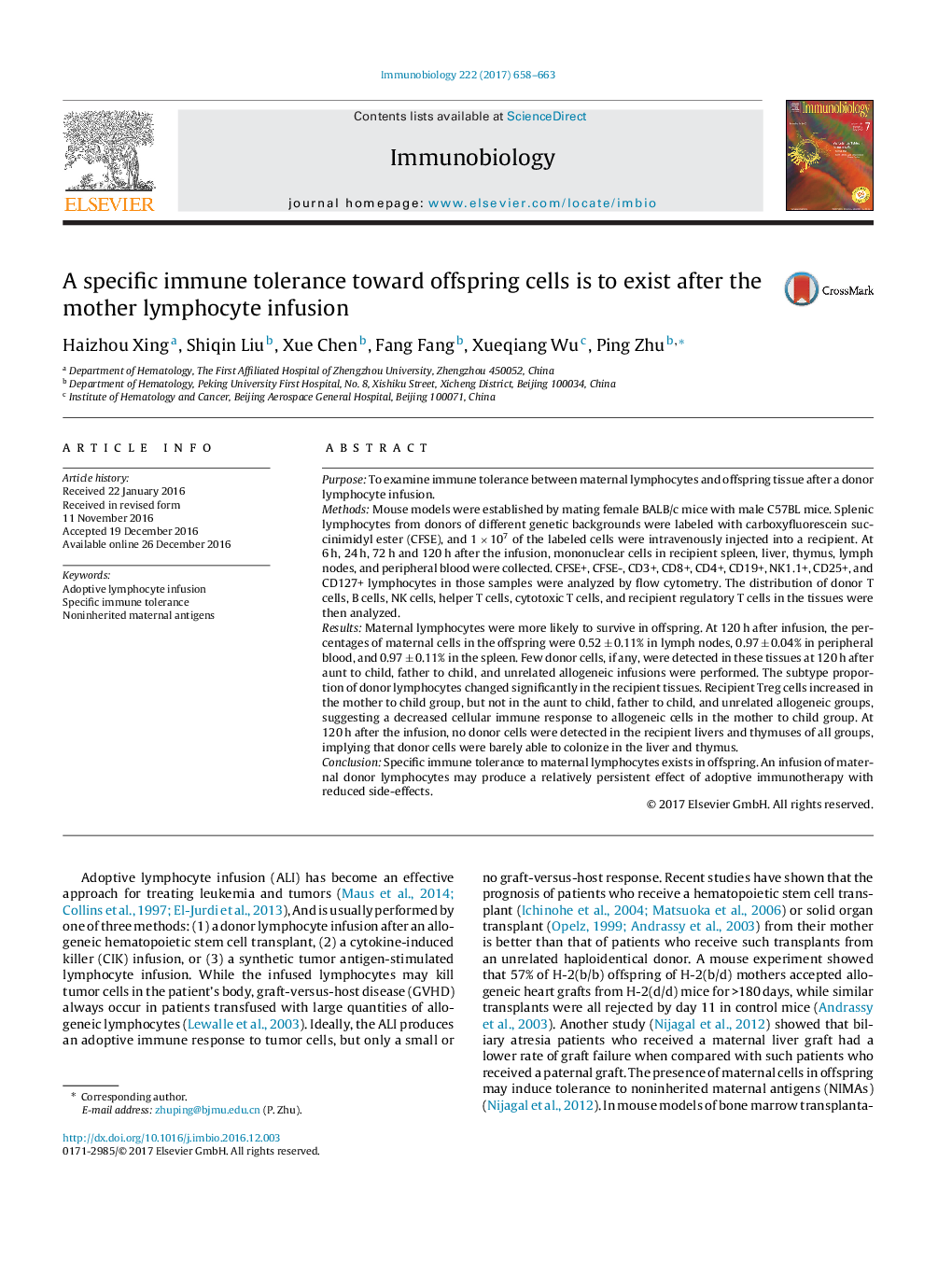| کد مقاله | کد نشریه | سال انتشار | مقاله انگلیسی | نسخه تمام متن |
|---|---|---|---|---|
| 5532764 | 1402074 | 2017 | 6 صفحه PDF | دانلود رایگان |
PurposeTo examine immune tolerance between maternal lymphocytes and offspring tissue after a donor lymphocyte infusion.MethodsMouse models were established by mating female BALB/c mice with male C57BL mice. Splenic lymphocytes from donors of different genetic backgrounds were labeled with carboxyfluorescein succinimidyl ester (CFSE), and 1 Ã 107 of the labeled cells were intravenously injected into a recipient. At 6 h, 24 h, 72 h and 120 h after the infusion, mononuclear cells in recipient spleen, liver, thymus, lymph nodes, and peripheral blood were collected. CFSE+, CFSE-, CD3+, CD8+, CD4+, CD19+, NK1.1+, CD25+, and CD127+ lymphocytes in those samples were analyzed by flow cytometry. The distribution of donor T cells, B cells, NK cells, helper T cells, cytotoxic T cells, and recipient regulatory T cells in the tissues were then analyzed.ResultsMaternal lymphocytes were more likely to survive in offspring. At 120 h after infusion, the percentages of maternal cells in the offspring were 0.52 ± 0.11% in lymph nodes, 0.97 ± 0.04% in peripheral blood, and 0.97 ± 0.11% in the spleen. Few donor cells, if any, were detected in these tissues at 120 h after aunt to child, father to child, and unrelated allogeneic infusions were performed. The subtype proportion of donor lymphocytes changed significantly in the recipient tissues. Recipient Treg cells increased in the mother to child group, but not in the aunt to child, father to child, and unrelated allogeneic groups, suggesting a decreased cellular immune response to allogeneic cells in the mother to child group. At 120 h after the infusion, no donor cells were detected in the recipient livers and thymuses of all groups, implying that donor cells were barely able to colonize in the liver and thymus.ConclusionSpecific immune tolerance to maternal lymphocytes exists in offspring. An infusion of maternal donor lymphocytes may produce a relatively persistent effect of adoptive immunotherapy with reduced side-effects.
Journal: Immunobiology - Volume 222, Issue 4, April 2017, Pages 658-663
